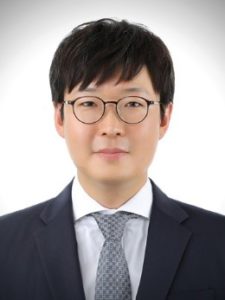 Seungdae Oh is an assistant professor in the Department of Civil Engineering at Kyung Hee University. Prior to joining KHU, he was an assistant professor (2015–2017) in the School of Civil and Environmental Engineering at Nanyang Technological University in Singapore and a postdoctoral research associate at University of Illinois at Urbana-Champaign. He received his PhD from Georgia Institute of Technology, after obtaining his BS from Chung Ang University and MS from KAIST in Korea, respectively.
Seungdae Oh is an assistant professor in the Department of Civil Engineering at Kyung Hee University. Prior to joining KHU, he was an assistant professor (2015–2017) in the School of Civil and Environmental Engineering at Nanyang Technological University in Singapore and a postdoctoral research associate at University of Illinois at Urbana-Champaign. He received his PhD from Georgia Institute of Technology, after obtaining his BS from Chung Ang University and MS from KAIST in Korea, respectively.
He is interested in diverse aspects of environmental microbiology and biotechnology. Recent interests include fate, risk, and abatement of micropollutants, antibiotic resistance, and infectious pathogens in urban water cycles and advanced biological treatment of water and waste streams.
Read his Emerging Investigator article “activated sludge upon antibiotic shock loading: mechanistic description of functional stability and microbial community dynamics” and read more about him in the interview below:
Your recent Emerging Investigator Series paper focuses on activated sludge upon antibiotic shock loading: mechanistic description of functional stability and microbial community dynamics. How has your research evolved from your first article to this most recent article?
My master’s study involved process optimization of anaerobic sludge systems treating organic wastes. One day, I happened to look at tiny microbes swimming in the sludge through a microscope, which fascinated/led me to be more interested in microbial communities and their life. I could learn about ecology and develop genomic/bioinformatic techniques for characterizing diverse microbial communities during my PhD/postdoctoral works. Those fundamentals/techniques (and still with a microscope) help our laboratory explore microbes in sludge and various environments
What aspect of your work are you most excited about at the moment?
I’m excited when I find out the role of a microbe in the environment one-by-one. The more excited is that there are countless to be characterized.
In your opinion, what are the most important questions to be asked/answered in this field of research?
Water can be circulated via closed loops in urban cities, from toilet to tap. Since microbes/viruses (harmful or beneficial) are always carried with water, it would be interesting to address how they travel, whether they matter for health, and what affects their traveling.
What do you find most challenging about your research?
Training students is challenging but worthwhile.
In which upcoming conferences or events may our readers meet you?
No plan due to the pandemic. Conferences I often attend include IWA, ASM Microbe and ISME.
How do you spend your spare time?
Spending time with my family. We enjoy going to parks/playgrounds and travel over the country.
Which profession would you choose if you were not a scientist?
If I had to pick, maybe performing art? I participated in a school theater club and performed acting in a play. I didn’t do well but surely enjoyed.
Can you share one piece of career-related advice or wisdom with other early career scientists?
Work hard but not to the extent disturbing the family.










